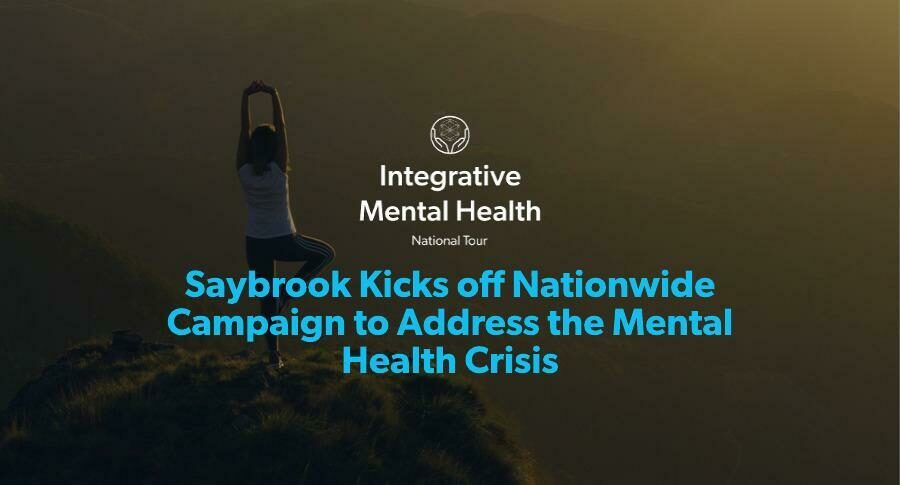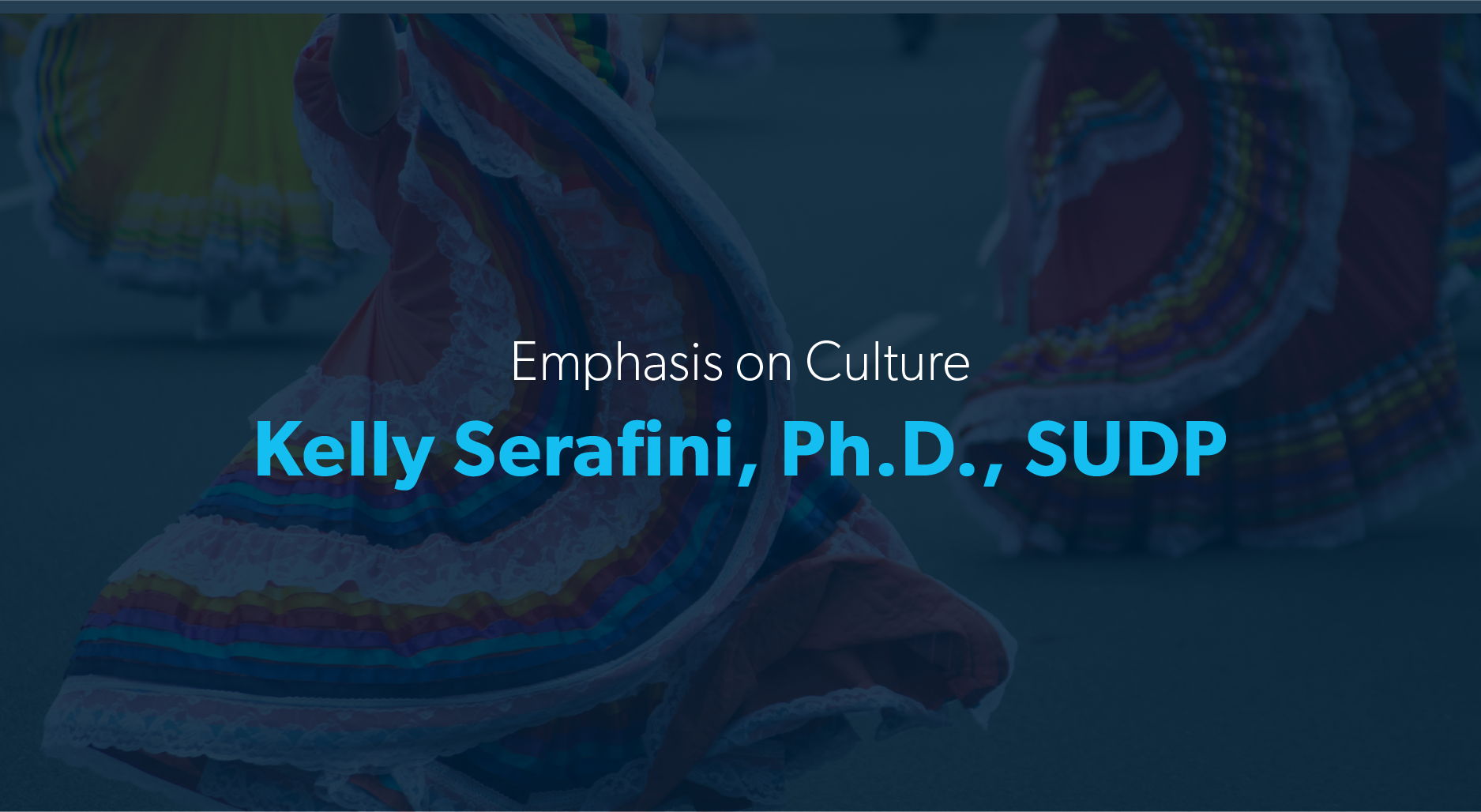Elevating Your Clinical Practice with a Humanistic Legacy
Our Ph.D. in Clinical Psychology program is the pursuit of the most advanced knowledge and skills needed to serve others with a holistic and humanistic view. Within the Clinical Psychology Ph.D. curriculum, you will develop the ability to conduct ethical and effective psychotherapy based on psychological research rooted in multicultural and humanistic-existential psychology.
Students will study how to integrate modalities like cognitive behavioral therapy (CBT) with humanistic approaches, mindfulness-based meditation practices, spirituality, and prayer, the long-standing traditions of humanistic, transpersonal, and existential psychology, the adherence to ethical standards, relevant laws, regulations, and policies governing clinical psychology, and more. Through this clinical psychology doctoral program, you will emerge with the capacity to build therapeutic relationships rich with transformative change, contribute to psychological research, and promote health and wholeness in your chosen clinical field, based on your interests and career aspirations.
Saybrook University is accredited by the WASC Senior College and University Commission (WSCUC), but the Ph.D. in Clinical Psychology program does not have programmatic accreditation by the American Psychological Association (APA). The hybrid online Ph.D. in Clinical Psychology program may not meet year-in-residence requirements of some state professional licensing boards or agencies. To be eligible, graduates should consult their individual state licensing boards for any additional state-specific requirements.
Saybrook University’s Clinical Psychology Ph.D. aligns with program requirements for professional licensure in several states. You will find more information on licensure on the professional licensure and certification disclosures page.
Our Mission
The Department of Humanistic Clinical Psychology cultivates innovative, multidisciplinary, socially and community engaged scholar-practitioners through rigorous education and training that values the whole person within their unique context, including the creative, spiritual, psychological, and sociocultural dimensions of human beings.
Bachelor’s and Master’s Applicants Accepted
The Ph.D. in Clinical Psychology program welcomes applicants from multiple academic pathways, whether you’re starting with a B.A./B.S. degree or an M.A./M.S. degree. If you enter with a bachelor’s degree or without prior graduate coursework in psychology or a related discipline, you’ll complete the required M.A. in Clinical Psychology coursework as part of the Ph.D. program, building a strong foundation for advanced doctoral training.
If you already have a master’s degree in psychology or a related field, you may be eligible to transfer up to 15 credits toward elective requirements, allowing you to progress through the program more efficiently. Depending on your prior academic coursework and entry pathway, the total credits required to complete the Ph.D. program range from 100–109*.
*Credits required vary based on prior academic coursework and degree background.
Ph.D. Clinical Psychology Job Outcomes
The Clinical Psychology doctorate program is intended to prepare graduates for clinical practice, research, teaching, and leadership. If you are interested in becoming a licensed psychologist or entering into private practice, you will need to verify the licensure requirements of your state. You may also view notes on licensure here.
Additionally, you may also explore a variety of roles at health care facilities and beyond, including:
- Clinical directors
- Research scientists
- Policy advisors
- Health care administrators
- Nonprofit directors
- University professors
- Private practice
- Wellness and life coaches
Other Clinical Psychology Doctoral Programs
Though not required, students can focus their studies further by using electives to declare certain specializations. There are other specializations from other degree programs that are also open to clinical psychology students. The specializations students can declare include:
- Ph.D. in Clinical Psychology: Advanced Psychological Assessment Specialization
- Ph.D. in Clinical Psychology: Applied Psychophysiology Specialization
- Ph.D. in Clinical Psychology: Complex Trauma and the Healing Process Specialization
- Ph.D. in Clinical Psychology: Consciousness, Spirituality, and Integrative Health Specialization
- Ph.D. in Clinical Psychology: Creativity, Innovation, and Leadership Specialization
- Ph.D. in Clinical Psychology: Existential and Humanistic Psychology Specialization
- Ph.D. in Clinical Psychology: Jungian Studies Specialization
- Ph.D. in Clinical Psychology: Specialization in Teaching and Advanced Research (STAR)
Program Components
Admissions Requirements
You may apply to the Ph.D. in Clinical Psychology program with a completed B.A., B.S., M.A., or M.S. from a regionally accredited college or university. A bachelor’s or master’s degree in psychology or a related discipline is recommended. Non-Psychology majors will also be considered for admission. Applicants for the Ph.D. in Clinical Psychology degree must submit the following documents:
- An official transcript from an accredited university demonstrating successful completion of a B.A., B.S., M.A., or M.S. degree, with a 3.0 GPA or better
- Resume or CV
- Personal statement
- One letter of recommendation from a professional reference
Sample Courses
Supervision in Clinical Psychology
This three-credit course critically examines methods, relationships, ethics, multiculturalism, and evaluative processes of clinical supervision. Special focus is given to establishing a meaningful supervisor-supervisee relationship. While you will learn about different theoretical orientations that may inform your supervisory experience, you will be encouraged to consider your role in these relationships from a humanistic standpoint that will foster growth in the supervisor, supervisee, and your clients.
Cognitive Behavioral Therapy Applied within a Humanistic and Integrative Approach
This three-credit cognitive behavioral therapy (CBT) course will offer a review of key foundational theories and concepts, as well as methods of assessing, conceptualizing, and treating patients using CBT approaches. You will also learn about the efficacy and limitation evidence for utilizing CBT in treating symptoms of several disorders. In addition to learning the key concepts of CBT and practicing core skills, you will examine how CBT can be integrated with humanistic and other integrative therapy approaches.
Mindfulness and Spirituality in Clinical Practice
This three-credit clinical course explores these recent trends that mirror aspects of the long-standing traditions of humanistic, transpersonal, and existential psychology in the integration of mindfulness-based meditation practices, spirituality, and religion and prayer in clinical practice. Through reflective inquiry, you will gain understanding regarding your own experience and views regarding these factors in therapy and how you might find yourself in relationship to them professionally.
Cost
Saybrook wants you to have the information you need to make an informed decision about your academic and career aspirations. Our cost calculator provides an estimated cost of attending Saybrook to earn your Ph.D. in Clinical Psychology degree.
FAQs
What is an online Ph.D. in Clinical Psychology?
An online Ph.D. in Clinical Psychology offers students an opportunity to train in rigorous research, preparing for a career in research and academia. Our online psychology doctoral degree includes virtual courses with required in-person clinical and community learning experiences that focus on the tradition of existential, humanistic, and transpersonal psychology. The Ph.D. in Psychology offers an education that helps students expand their outlook beyond the confines of a discrete discipline.
Is the Ph.D. in Clinical Psychology 100% online?
No, the Clinical Psychology doctoral degree curriculum is offered completely online, combining online learning with periodic, in-person Residential Learning Experience (RLE) as an academic requirement.
How long does it take to complete the online doctorate in Clinical Psychology?
The clinical psychology Ph.D. with online courses requires 60-75 credits for completion. This is typically completed in five to six years.
Is a dissertation required to complete a Ph.D. in Clinical Psychology?
Yes, a dissertation is required to complete the clinical psychology doctoral program with online courses.
Does the Ph.D. in Clinical Psychology online prepare students for licensure?
No, this Ph.D. clinical psychology program is not designed to prepare students for future professional licensure.
Can I transfer credits into the online Clinical Psychology Ph.D. degree program?
Yes. Approved transfer credits are all allowed and count toward the Clinical Psychology doctoral degree requirements.
Faculty
Department Core Faculty
Vanessa Brown, Psy.D.
Associate Chair
Department Core Faculty
Adam Duberstein, Psy.D.
Department Core Faculty
Inma Ibanez, Ph.D.
Department Core Faculty
Betz King, Psy.D.
Department Core Faculty
Isaac G. Martinez, Ph.D.
Department Core Faculty
Cynthia Palmisano, Psy.D.
Department Core Faculty
Coordinator, Advanced Assessment Specialization
Susan Rarick, Ph.D.
Department Core Faculty
Director of Clinical Training and Field Placement
Portia Rawles, Psy.D.
Department Core Faculty
Director, Complex Trauma and the Healing Process Specialization
Kelly Serafini, Ph.D.
Department Core Faculty
Bonnie Settlage, Ph.D.
Department Core Faculty
Drake Spaeth, Psy.D.
Department Core Faculty
Director, Existential-Humanistic Psychology Specialization
Interim Coordinator, Jungian Studies Specialization
Associated Faculty
Kimberley Cox, Ph.D.
Associated Faculty
Jennifer DeDecker, Ph.D.
Associated Faculty
Randy Heinrich, D.M.
Associated Faculty
Robert Cleve, Ph.D.
Associated Faculty
Director of Creativity, Innovation, and Leadership Specialization
Walker Ladd, Ph.D.
Associated Faculty
Chair of the Department of Research
Director of Specialization In Teaching and Advanced Research
Marina Smirnova, Ph.D.
Associated Faculty
Director of Consciousness, Spirituality, and Integrative Health Specialization
Dr. Eric Willmarth
Associated Faculty
Director, Applied Psychophysiology Specialization
Adjunct Faculty
Todd Dubose, Ph.D.
Adjunct Faculty
Nathaniel Granger, Jr., Psy.D.
Adjunct Faculty
Louis Hoffman, Ph.D.
Adjunct Faculty
Amy Johanson, Psy.D.
Adjunct Faculty
Silvio Machado, Ph.D.
Adjunct Faculty
Cacky Mellor, Ph.D.
Adjunct Faculty
Melissa Oleshansky, Ph.D.
Adjunct Faculty
Megan Peitrucha, Psy.D.
Adjunct Faculty
Grant Rich, Ph.D.
Adjunct Faculty
Diana Rivera, Ph.D.
Adjunct Faculty
Michael Sakuma, Ph.D.
Adjunct Faculty
Kirk Schneider, Ph.D.
Adjunct Faculty
Drew Smith, Ph.D.
Adjunct Faculty
Amy Taylor, Ph.D.
Adjunct Faculty
Program Learning Outcomes
The Clinical Psychology degree program aims to prepare entry-level psychologists who are both scientifically informed and humanistically grounded. By the end of the program, students will be able to demonstrate doctoral-level discipline-specific knowledge, profession-wide and program-specific competencies, in the following ways:
- Evaluate and apply relevant psychological theories, including affective, biological, cognitive, developmental, and social bases of behavior, to form strength-based holistic conceptualizations of persons within context (i.e. individual, collective, community, systems, etc.).
- Develop a therapeutic relationship that facilitates transformative change through evidence-based, practice-based, and community-defined practices, empathy, congruence, and authenticity.
- Critically consume, analyze, contribute to, and disseminate psychological research in an applied, academic, and/or community-informed manner.
- Demonstrate professional values, attitudes, behaviors, interpersonal skills, and communication through an evolving self-reflection of their strengths, biases, and areas for growth in humanistic practice and scholarship.
- Effectively integrate and apply American Psychological Association (APA) ethical standards, relevant laws, regulations, and policies governing the research, teaching, and practice of clinical psychology.
- Develop advocacy and accountability for diversity, equity, inclusion, social justice, and anti-racism in the field of clinical psychology in a knowledgeable and self-reflective manner.
Career Outcomes
According to the Bureau of Labor Statistics, the job outlook for qualified psychologists is expected to grow much faster than average. As public awareness builds regarding the connection between mental health and overall health, licensed clinical psychologists may find careers in education, nonprofits, social agencies, and private-sector organizations. They will be challenged to address the needs of many populations, including students, seniors, military personnel, veterans, prisoners, parolees, first responders, and those suffering from chronic illness and substance abuse.
Saybrook University prepares you to make an impact in a variety of high-demand careers. Below, you will find possible career options and salaries associated with this degree.
Data is pulled by a third-party tool called Lightcast, which includes data from sources including the U.S. Bureau of Labor Statistics, the U.S. Census Bureau, online job postings, and other government databases. The information below represents a regional and national career outlook related to this degree program*. Saybrook University is dedicated to assisting you in achieving your career goals.
*Many degree programs are intended to fulfill licensure requirements in specific states. The data shown here may not represent the state where you currently reside. For more information on how this program is applicable to the requirements of your state, please speak with your admissions specialist.
Invest in Your Future
Saybrook University remains committed to keeping higher education affordable and accessible. Our Financial Aid Department is ready to offer guidance and support in determining suitable financial assistance tailored to your needs, including potential scholarship opportunities, grants, and more.
Catalog
Please refer to our academic catalog for more information on the Ph.D. in Clinical Psychology program.
University Learning Experience
Our Ph.D. in Clinical Psychology program is a hybrid online program. Coursework is completed online and augmented with two five-day, in-person Residential Learning Experiences (RLE) per year. RLEs occur at the beginning of the Fall and Spring semesters in California. If you are a resident of Washington state, there is an additional RLE per term to meet the increased in-person requirement hours. Every odd-numbered year, the RLE takes place during a larger Community Learning Experience (CLE), encouraging interaction with the larger Saybrook community. In this program, you will begin your studies with a virtual Welcome Week. Welcome Week activities, including a program orientation, are held online during the week before the start of Fall and Spring semesters.

Clinical Psychology Faculty
Saybrook’s Clinical Psychology faculty are practitioner-scholars dedicated to advancing their field through continued practice and comprehensive instruction. Meet some of our faculty members below.
UNBOUND: Humanistic Clinical Psychology
Graduate clinical psychology programs designed for those who wish to utilize a variety of evidence-based psychological interventions and approaches in clinical settings.



Ready to Take the Next Step?
Submit an inquiry and one of our admissions specialists will connect with you to answer your questions and guide you through next steps.
























